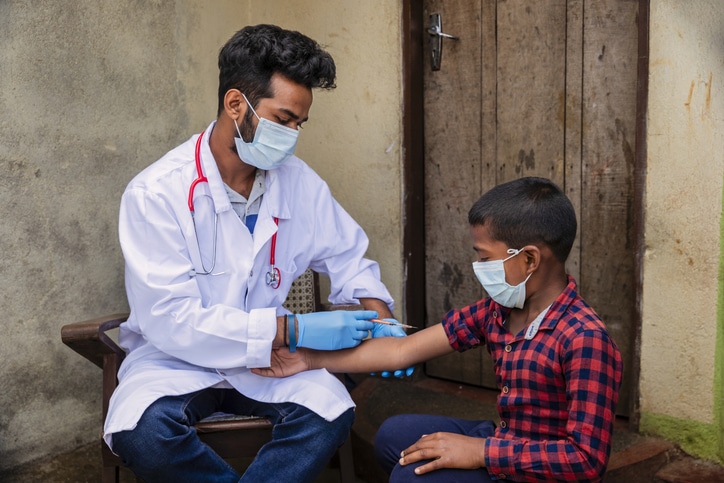Coordinating medical missions in multilingual environments comes with unique communication challenges. Doctors Without Borders (Médecins Sans Frontières, MSF) depends on both on-site and remote interpreters, as well as written translations, to connect international teams, reach local communities, and share critical information. Whether in virtual meetings, telemedicine, or document workflows, language support helps keep operations efficient and culturally responsive.
Supporting Coordination Through Remote Interpreters
When humanitarian organizations like Doctors Without Borders operate across borders and in multilingual regions, clear communication becomes essential. In these settings, remote interpreters are often called upon to bridge language gaps between team members. Whether coordinating health missions, conducting medical consultations, or running staff briefings, MSF ensures smooth interaction by integrating remote interpreters into their workflows. In fact, MSF operates in over 70 countries and uses more than 50 different languages across its missions – a scale that requires robust and flexible interpreting solutions.
While distance interpreting had existed previously, particularly in specialized fields like health interpreting, or for remote participants in physical conferences, a survey-based study conducted in 2021 indicates that the pandemic led to a boom in remote simultaneous interpreting. Zoom responded to this trend by introducing integrated interpreting features in its platform in 2020, supporting the growing need for multilingual online meetings. Vital for real-time translation, professionals using the Zoom platform also help maintain cultural sensitivity in high-stakes environments. Zoom interpreting supports online meetings, while conference interpreting plays a key role in international planning sessions, medical briefings, and training events. With the right language support in place, all participants stay aligned, no matter where they are.
Expanding Communication Channels Through Remote interpreters
Doctors Without Borders usually draws on interpreters from the same regions as the communities they serve enabling effective interaction with local communities, officials, and patients. This strengthens trust and allows for communication that is sensitive to local dialects and cultural norms. In some missions, MSF teams interact with speakers of more than ten local languages, which is a challenge for on-site interpreters alone, especially when workload, accent variation, or limited medical vocabulary add to the strain. In situations where on-site interpreters face limitations, or may not be available, remote interpreters can provide crucial support, especially in telemedicine, where healthcare professionals reach patients in remote or hard-to-access areas for medical consultation. While not a substitute for local presence, remote interpreters expand the organization’s reach and help ensure clear, accurate communication across borders.
Translation as a Tool for Accountability and Inclusion
While remote interpreters support communication across MSF’s international offices and virtual meetings, written translations remain equally important, as MSF recognizes the importance of language access in its humanitarian efforts, which includes translating documents and reports into various languages. This practice is essential for effective communication, particularly in crisis situations where understanding information can significantly impact community resilience and response efforts. By ensuring that vital information reaches non-English-speaking populations, translation enhances their ability to respond to health crises. Language access also forms a key part of the Grand Bargain commitments, as it promotes two-way communication between MSF and affected communities. However, effective translation requires dedicated resources and ownership within the organization to ensure quality and consistency. While MSF actively engages in translation efforts, the broader humanitarian sector still faces challenges in fully integrating language access into operational frameworks, indicating a need for ongoing improvement in this area through investment in professional language services.
From On-Site to Remote Interpreters: Supporting International NGOs
By relying on an established interpreter service such as an experienced medical interpreter agency, NGOs like Doctors Without Borders can maintain professional standards and improve collaboration across language divides. A study from 2022 showed that the presence of professional medical interpreters is associated with higher satisfaction rates among patients and clinicians. This emphasizes how crucial qualified medical interpreters are for building trust and improving communication in humanitarian contexts.
Language Connections supports this effort by offering conference interpreting services, remote interpreters and translations for non-profit organizations. With long-standing experience in the international development sector and a track record in providing international development translation services, we understand the demands of multilingual communication in high-stakes environments. Not only do we offer medical interpreters with sector-specific expertise, we also offer our own training program to ensure they meet the demands of healthcare communication. If your organization is looking for reliable language support in critical settings, our team is here to help.

Language Connections Inc.
22 Goddard Circle
Brookline, MA 02445
Phone: +1-617-731-3510
Email: service@languageconnections.com

